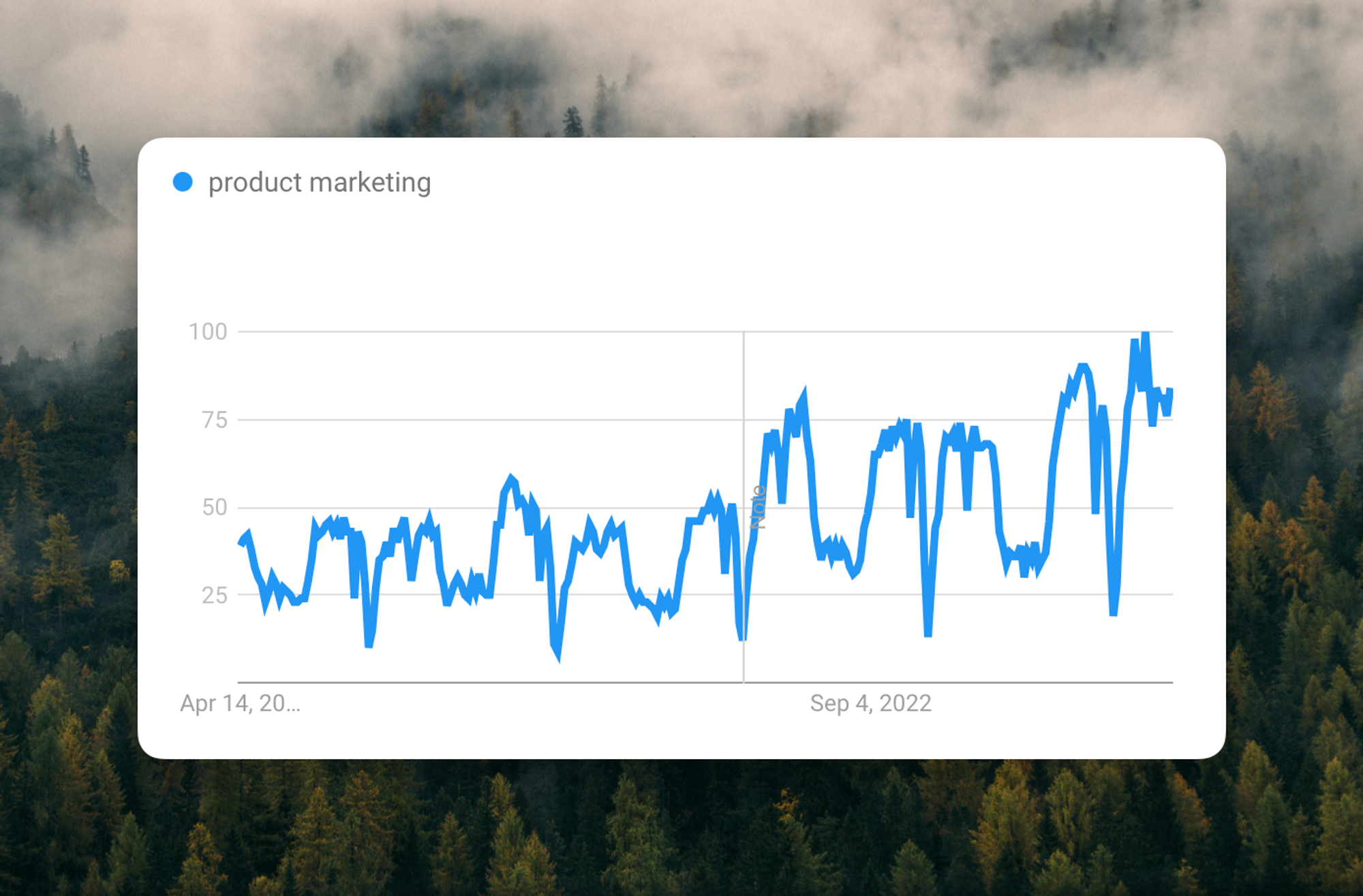
Product marketing is having a moment.
There's a defining shift happening in startups that product marketers are benefiting greatly from. Product marketing roles have seen salaries grow by 8% over the last five years, compared to 4-6% for other marketing roles in the U.S.
Why is this happening?
Why would their salaries (and demand) outpace those of, say, growth marketers? Growth is the lifeblood of a company, after all. And I can say from experience that growth leads do not have a particularly high quality of life. The work is deeply stressful, you're often scapegoated, and if you fail? So does the company.
Product marketing is frankly much more pleasant but requires a more unique blend of skills. They must excel at copywriting, strategy, execution, communication, sales, content, analytics, research, lifecycle marketing, etc. They touch every area of a company's marketing, centralizing efforts between marketing, sales, and product.
Within an organization, the product marketer is both the architect of market fit and the sage of customer psyche. Their toolkit is more refined, requiring acute judgment and a sense of taste.
Hustle and intelligence, while immensely valuable qualities, are not as hard to find. An intrinsic ability to just "get it" is profoundly rarer. Upsettingly so. Founders overturn mountains looking for these employees and will do anything not to lose them once found.
Imagine there exists a B2B healthcare startup with both a growth marketer and a product marketer. Each would like to produce an article on how to cover your startup's employee healthcare.
The growth marketer crafts an article optimized for SEO—rich in keywords, overly structured, and packed with links. Its goal? Pure acquisition. It doesn’t need to actually solve problems; it just needs to capture leads.
The product marketer’s approach is fundamentally different. Their content is aimed directly at solving the reader's problem. This, of course, supports sales, improves email conversion rates, and all that other stuff. But fundamentally, it must be good content. It's not just there to produce leads. It's there to support an actual brand and product.
I'm not saying that SEO is easy, but the growth marketer's article is substantially easier to produce than the product marketer's. This is particularly true when it comes to using AI.
Product leadership roles are quickly evolving here. They're the first in the industry to move past the antiquated model of spending one's time and energy coordinating and managing people.
Imagine a product marketing lead not as a general directing troops, but more as an engineer in a control room optimizing a vast, complex network of systems. These systems of AI tools, models, and workflows will become the marketing powerhouse of a company.
Product marketers, not growth marketers, will be the ones guiding this machine.
Ultimately, it will mean a world of upside for people building companies. But there is a massive caveat to that: you must get that one hire right. The right captain can steer a ship to new worlds. The wrong one will certainly sink it.
So how do you find such a marketer?
- Put the qualities of agency, judgment, and taste on a pedestal. Do not compromise.
- Find someone excellent at writing (and therefore thinking).
- Look for someone who is actively building things that excite them.
- Make sure the person is enthusiastically using AI in their life. How well they can prompt is a great proxy here.
Part of what makes finding such a person so challenging is that often these people do not fall into product marketing roles. These types of people make excellent founders, content creators, investors, etc.
The best shot is in finding someone who wants to build something bigger than they can alone. The work of a product marketer, after all, is quite pleasant. In that sense, the first thing you need to do is find people with the above qualities. Then you need to find the ones with whom your mission truly resonates.